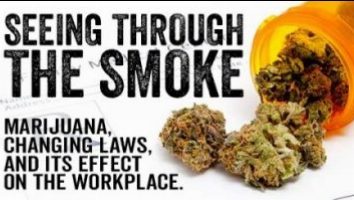Employers regulated by Federal law (DOT, HHS, Federal Drug Free Workplace Act) are still required to test for the Standard Federal 5 panel drug test which currently screens for the following drugs.
- Marijuana (THC)
- Cocaine
- Amphetamines
- Opioids
- Phencyclidine (PCP)
Under ‘Opioids’, previously ‘Opiates’, DOT testing will continue to include confirmatory testing, when appropriate, for Codeine, Morphine, and 6-AM (heroin).
HHS also added initial and confirmatory testing for the semi-synthetic opioids Hydrocodone, Hydromorphone, Oxycodone, and Oxymorphone to this Opioids group. Some brand names for the semi-synthetic opioids include OxyContin®, Percodan®, Percocet®, Vicodin®, Lortab®, Norco®, Dilaudid®, Exalgo®.
Non-Regulated Employers
In most states employers still reserve the right to be a drug free workplace regardless of specific State or local municipalities laws regarding recreational and/or medical marijuana. We recommend that each employer review their drug free workplace policy and any specific State, local or case law that may impact testing for a marijuana prior to implementing a drug free workplace policy/program.
What Employers Can Do?
- Create a culture of safety for your employees, customers and community
- Research any State, local or case law that may impact your drug free workplace policy to ensure compliance
- Update your workplace drug & alcohol policy, making sure it is clear on violations and consequences.
- Your policy should include all forms of drug & alcohol testing that you intend to use.
- Employees company-wide must be made aware of the workplace drug & alcohol policies and procedures. This is an on-going conversation that should occur on a regular basis.
- Enforce your policies consistently and fairly.

